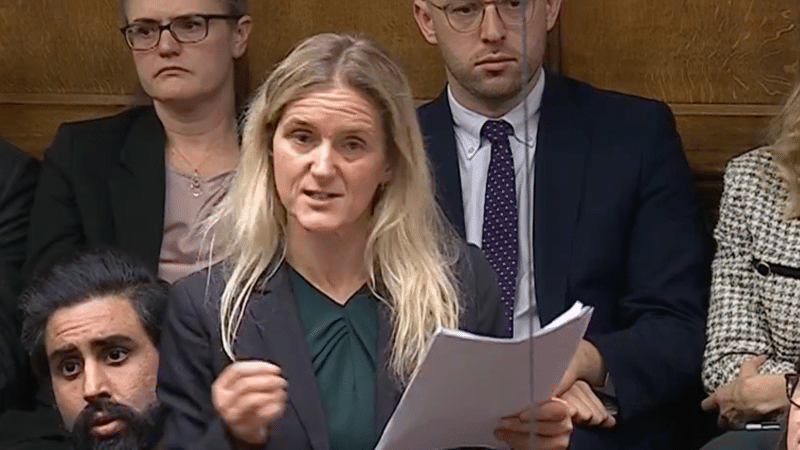Kim Leadbeater has dismissed inconvenient evidence and legitimate concerns about her assisted suicide Bill as “noise”.
Respected columnist for The Guardian, Sonia Sodha, criticised the Bill’s architect for taking opposition as an ‘affront’, and warned that forcing the Bill through without sufficient scrutiny will result in the state assisting in wrongful deaths.
In its current form, Leadbeater’s Terminally Ill Adults (End of Life) Bill would allow patients in England and Wales deemed to be terminally ill and with less than six months to live to receive help to kill themselves.
‘Noise’
Sodha acknowledged “There could not be more at stake” with this Bill and stressed it is “critical that the bill’s proponents engage constructively with the doctors, psychiatrists, social workers, lawyers and domestic abuse experts” who have concerns.
However, she observed that rather than welcoming constructive criticism to try and improve her Bill, Leadbeater has been “affronted” by the opposition.
The columnist commented: “she has characterised it as ‘noise’, described those who oppose her change in the law as unconstructive, and has complained about their ‘clear mobilisation’. (Yes, when people are worried that legislation could have tragic consequences, that’s what they do.)”
Lack of scrutiny
Sodha, an adviser to Ed Miliband when he led the Labour party, went on to list a series of decisions that have skewed the Committee tasked with scrutinising the Bill towards favouring assisted suicide.
She noted that Leadbeater “left off seasoned MPs with relevant experience” in favour of less experienced ones, ‘cherrypicked’ evidence, and had to be “shamed” into allowing the Royal College of Psychiatrists to give evidence.
She also observed that only a few days had been given to hear oral evidence and to review more than 400 written submissions.
Secrecy
But the Observer’s chief leader writer reserved some of her most stinging criticism for the speed at which Kim Leadbeater ditched her claimed ‘ultimate safeguard’ – oversight from a High Court judge.
Acknowledging concerns with the practicalities involved she argued: “For it to function as a safeguard, the judge’s role would have needed significant beefing up”, but noted that instead “Leadbeater has watered it down by removing the judicial element altogether”.
Slating the proposed replacement by a panel of experts, Sodha commented: “They can sit in private; they don’t appear to have powers to compel witnesses to give evidence under oath; and not only is there no way for relatives to challenge approvals if they feel they have been given on the basis of incomplete evidence, there is also no obligation to let family members know”.
‘Dishonest’
She also addressed the new proposal for an assisted dying commissioner who would appoint the panels and report on their safety, a procedure Sodha likened to them “marking their own homework”.
The journalist explained: “Neither panel members nor the commissioner will be acting in a judicial capacity, but this hasn’t stopped proponents dishonestly branding the proposal as ‘judge plus’.”
More than 60 MPs cited the High Court judge’s involvement as at least part of the reason they supported the controversial Bill at Second Reading, and 20 others referenced its “judicial protections”.
No discretion
In The Telegraph barrister James Kirby also expressed concerns over the panels taking place in private, saying: “The first that the parents of a young woman with anorexia might find out about the process could be the fact that she had died.”
He added: “The Panel must approve assisted death if they are satisfied that the statutory conditions are met.
“They cannot refuse an application because of other circumstances that they might find troubling, for example that the applicant has decided to seek assisted suicide because they do not want to be a burden to their family or to the NHS.”
‘Death quango’
Fellow barrister Tom Chacko also highlighted concerns about the panel some have dubbed a “death quango”.
He noted: “What we now have is a panel of people who have applied specifically to do this: so they will tend to be either people who are ideologically committed to assisted suicide or people who are keen for a bit of extra money.”
Top psychiatrists warn staff shortages could render Leadbeater Bill unworkable
Whitty admits getting it wrong on capacity to choose assisted suicide
Leadbeater criticised for removing ‘ultimate safeguard’ from her assisted suicide Bill
Terminally ill could choose assisted suicide to save money under Leadbeater Bill



